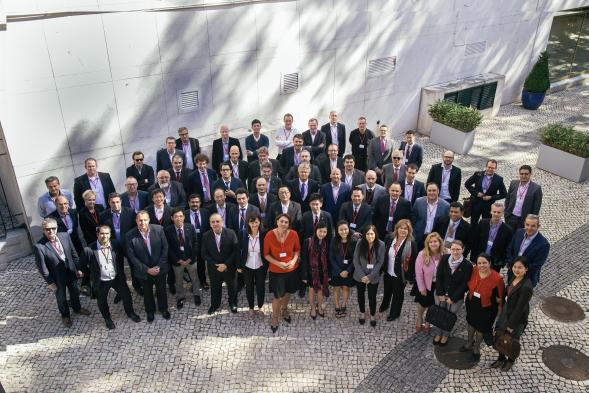LISBON OCTOBER 2015
INSTITUTE ATTENDS WORLD FREIGHT ALLIANCE AGM IN PORTUGAL
The WFA is an alliance of like minded, progressive and proactive freight forwarding logistics companies spread across the globe. Through their worldwide network, WFA offer global and freight solution to Beneficial Cargo Owners. The independent freight forwarding sector is now more vibrant and successful than ever, despite the global economic woes of the past few years. The rise of the independent agent has now been borne out by a whole range of statistics and data that prove that far from shrinking, the independents are growing faster and taking market share from the multinationals.
Latest figures from Drewry show that 41 per cent of all ocean freight is now controlled by 3PLs or forwarders and by the end of the decade analysts are predicting that the market share will rise to 50 per cent – a remarkable switch in business practice by BCO’s over the past two decades. 20 years ago some 75 per cent of all sea freight volumes were booked directly with carriers.
Even more remarkable is that it is independent freight forwarders and not multinational 3PL’s are expected to make up the lion’s share of this total at some 30 %

44 Companies with offices in over 100 Countries
Make up the World Freight Alliance Network
“This move away from direct booking with carriers by BCO’s is a great opportunity for independent forwarders to gain significant new business and volumes. For the logistics industry this is also a positive development and will help to further integrate the global supply chain.”
Kieran Ring CEO Global Institute of Logistics
This trend by BCO’s to outsource the management of their container traffic to independent freight forwarders, is being driven by increasing frustration with the lack of service, price volatility, schedule unreliability and onerous credit terms experienced in dealing directly with carriers in the sea freight industry.
Cariers due to the huge downward pressure on container rates (largely due to their own misguided strategies) are being forced to increasingly commoditize their product. As a result carriers are increasingly incapable of meeting shipper’s needs through direct relationships as they lack the end to-end service supply chain capabilities, focusing instead almost entirely on cost. Sales and customer service teams have been slashed as the fight to the bottom on rates continues. The advent of super alliances has further eroded the personal interfaces between the shipping lines and the end customers.
